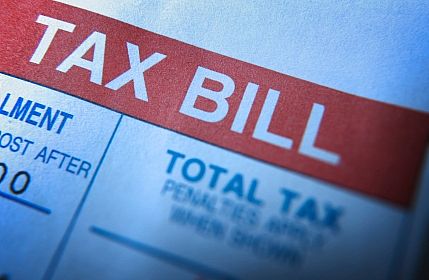 Thousands of elderly and disabled New Jersey residents will more easily get a break on their property taxes under a new law enacted this month. Known as the “senior freeze,” the program allows eligible homeowners to receive the difference between the amount of local property taxes they paid when they enrolled in the program and the amount they paid in the reimbursement year. Applicants must meet income requirements and have paid property taxes directly or through rent on a principal residence for at least 10 consecutive years, including three as the owner of the property for which they’re seeking reimbursement.
Thousands of elderly and disabled New Jersey residents will more easily get a break on their property taxes under a new law enacted this month. Known as the “senior freeze,” the program allows eligible homeowners to receive the difference between the amount of local property taxes they paid when they enrolled in the program and the amount they paid in the reimbursement year. Applicants must meet income requirements and have paid property taxes directly or through rent on a principal residence for at least 10 consecutive years, including three as the owner of the property for which they’re seeking reimbursement.
But participants who moved were ineligible to receive reimbursement until they had lived in their new residence for three years, a requirement that had drawn much criticism.
The measure, signed by Gov. Jon Corzine this month after it passed the Legislature this summer with bipartisan support, cuts a year off that requirement. It means qualified “senior freeze” participants can resume claiming their reimbursement after the second tax year in their new home.
The program now helps about 132,000 households. Recipients must be disabled or at least 65 years old and earning $80,000 or less annually.
“We are simply trying to make this process easier for senior and disabled residents,” said Linda Greenstein, (D-Hamilton,) who was among the bill’s primary sponsors in the Assembly. “They should not be tethered to one spot for fear of losing needed property tax relief.”
Other Assembly sponsors included Democrats Paul Moriarty of Turnersville, Sandra Love of Gloucester; Herb Conaway, (D-Delanco) and Doug Fisher of Bridgeton, who left the Legislature earlier this year after being appointed the state’s agriculture secretary.
“New Jersey’s property tax reimbursement program is a key lifeline to many senior and disabled homeowners striving to make ends meet, especially amid this global economic downturn,” Moriarty said.
In the Senate, Democrats Fred Madden of Turnersville, Jeff Van Drew of Cape May County and Steve Sweeney of Gloucester — the Senate majority leader — were primary sponsors, along with Republican Andrew Ciesla of Brick. AP


Whmmm….I wonder who will make up for the loss of revenue from the seniors. But keep on voting for that incumbent……